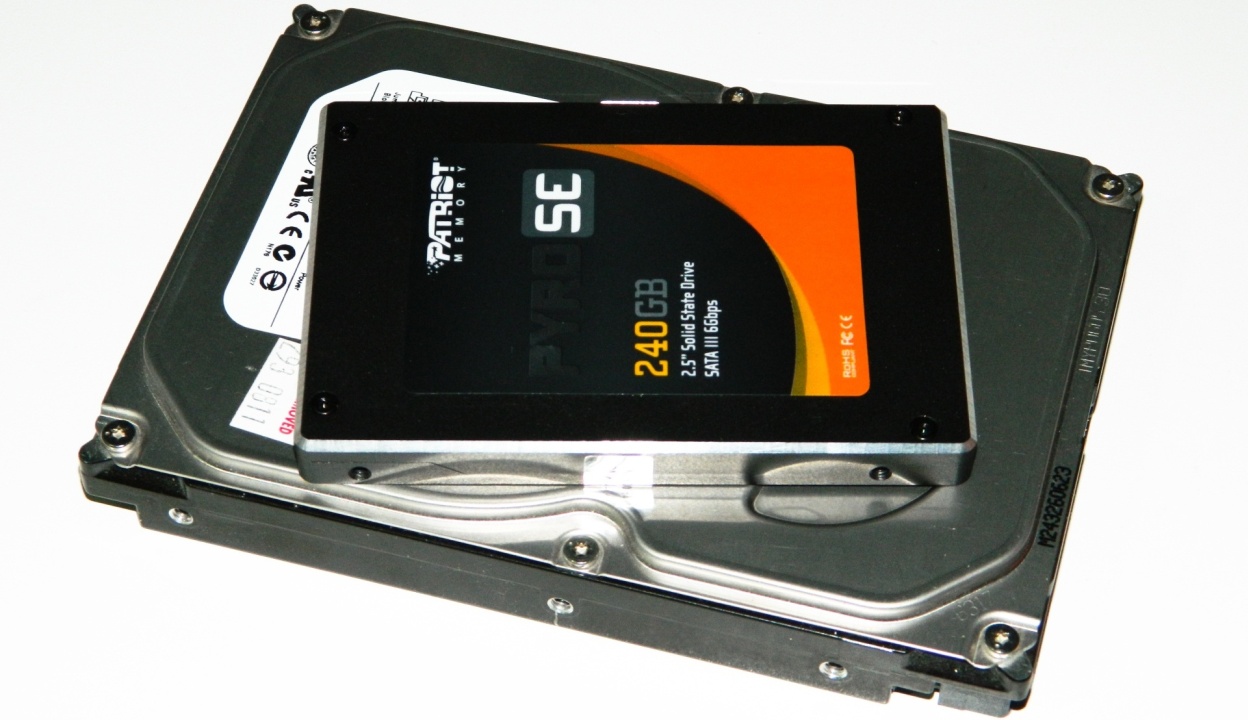
People now days tend to buy notebooks rather than Desktop tower PCs. So while they do so there is a choice to either choose an HDD or an SSD Drive. There’s no straight-forward answer to the question which one to buy; each buyer has different needs and it is their choice to evaluate the decision based on those needs, your preferences, and of course budget. So, let’s talk about what are the differences between SSD and HDD, and which one you need:
HDD drives use a rotating disk. An HDD uses magnetism to store data on a rotating platter. A read/write head floats above the spinning platter reading and writing data. The faster the platter spins, the faster an HDD can perform. Typical laptop drives today spin at either 5400 RPM (Revolutions per Minute) or 7200RPM, though some server-based platters spin at up to 15,000 RPM.
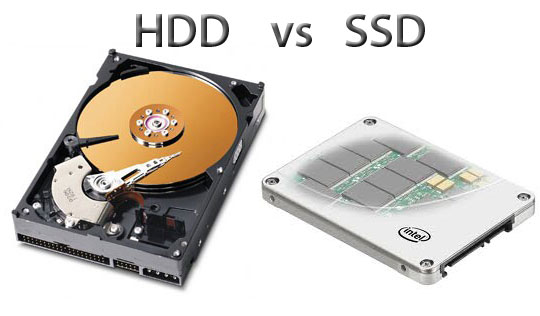 SSD drives use flash memory technology (NAND-based flash memory) that makes the drive 50% lighter than the conventional HDD drives or vibration resistant and much more reliable. Today Most of the SSD come in the form of memory card or USB stick. Firstly, SSD forms were introduced in many notebooks and tablets in the form of PCI express or SSX. However, many manufacturers have been developing SSD for the direct replacement of traditional Hard disk. Both SSD and HDD are the same size (2.5 inches) and connect the same SATA interface.
SSD drives use flash memory technology (NAND-based flash memory) that makes the drive 50% lighter than the conventional HDD drives or vibration resistant and much more reliable. Today Most of the SSD come in the form of memory card or USB stick. Firstly, SSD forms were introduced in many notebooks and tablets in the form of PCI express or SSX. However, many manufacturers have been developing SSD for the direct replacement of traditional Hard disk. Both SSD and HDD are the same size (2.5 inches) and connect the same SATA interface.![]()
Why SSD VS HDD was done and what was the result?
Boot Test:
SSD-based notebook boots double the time faster than the HDD-based notebook or even shutdown time.
 Opening a 25 MB file:
Opening a 25 MB file:
SSD-based notebook opens the file 3 times more faster. The reason besides this is the use of flash drives by SSD Hard drives. Like the conventional hard drive which searches any file with the help of its read/write head the technology is totally different in the case of SSD, it instead relies on an embedded processor called a controller to perform a bunch of operations related to reading and writing data.
Durability Test: (Vibration Resistant Test):
Since HDD drives have a magnetic disk attached to it has less capability to resist the vibration shock. The HDD-based notebooks fail to respond approximately at around 350 Hz whereas the SSD fails after the average of 5 times more.

An HDD might be the right choice if:
-You need lots of storage capacity, up to 4TB (though SSDs are constantly narrowing this gap).
-Don’t want to spend much money.
-Don’t care too much about how fast computer boots up or opens programs.
An SSD is the right choice if:
-You are willing to pay for faster performance.
-Don’t mind limited storage capacity or can work around that (Again, SSDs are working on this “con”).
HDDs are still the popular choice for the majority of average consumers, usually choosing the HDD as the storage option in their new computer simply due to the much cheaper cost. However, more and more consumers desire top computing performance and are opting for an SSD inside their new setup or as an upgrade to their current one. As such, SSDs are well on their way to becoming the mainstream, standard storage mechanism, especially for laptops given the advantages they present for a mobile device. That said, there will always be a market for both HDDs and SSDs. The advent of mSATA SSD devices and hybrid drives that include both SSD and HDD features is another option for consumers seeking a bit of the best of both worlds, but that’s a topic for another day!













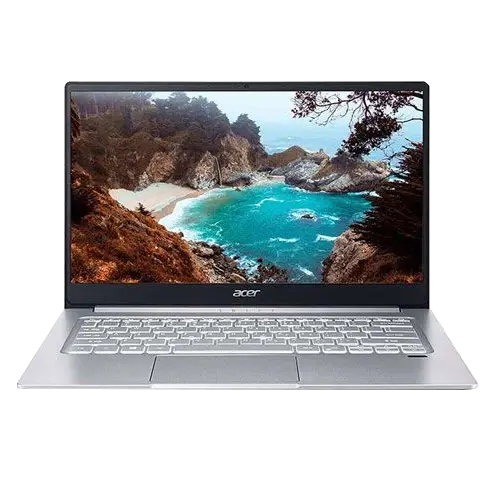
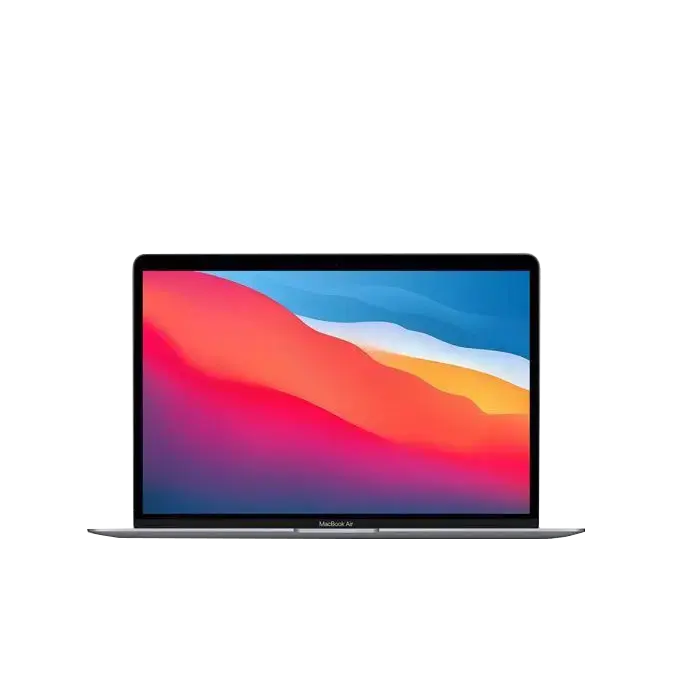
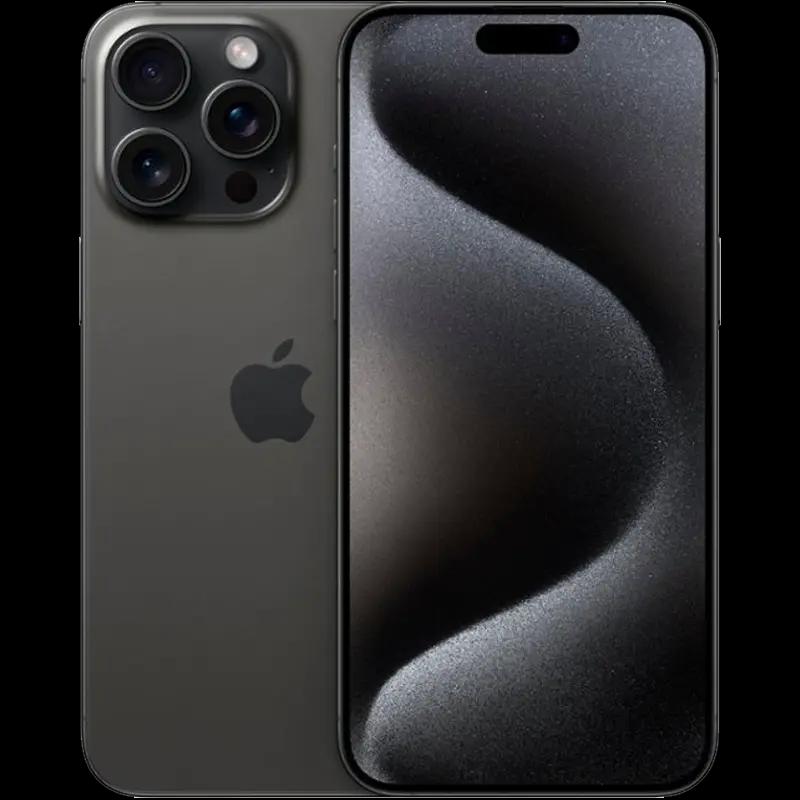
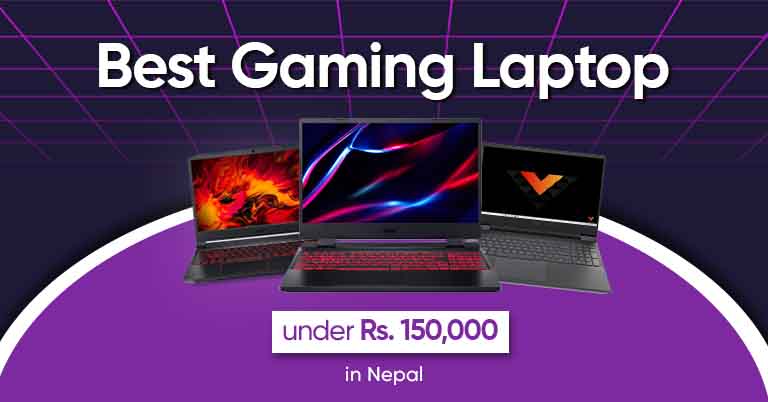
![Best Ultrabooks To Buy in Nepal 2024 [Updated] Best Ultrabook Laptops in Nepal 2023 - June Update](https://cdn.gadgetbytenepal.com/wp-content/uploads/2023/04/Best-Ultrabook-Laptops-in-Nepal-2023-June-Update.jpg)
![Best Gaming Laptops in Nepal 2024 [Updated] Best Gaming Laptops in Nepal 2023 - June Update](https://cdn.gadgetbytenepal.com/wp-content/uploads/2023/04/Best-Gaming-Laptops-in-Nepal-2023-June-Update.jpg)
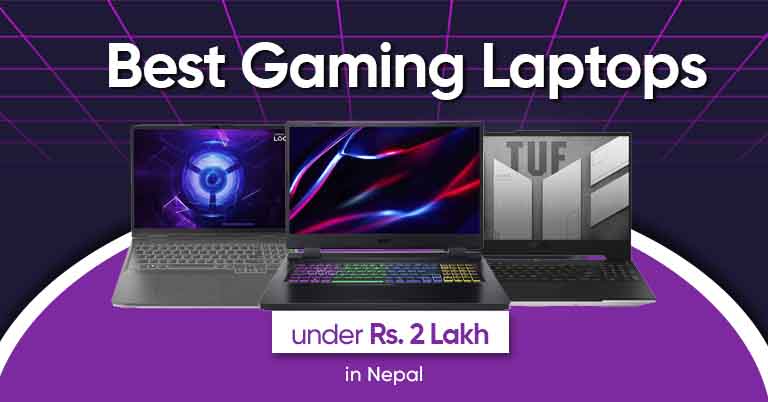
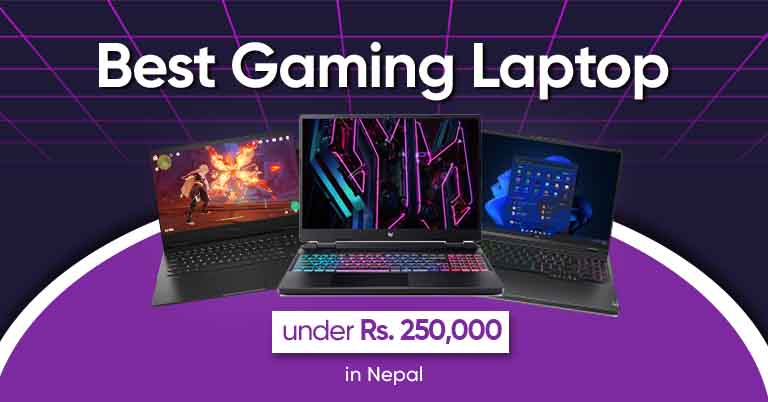
![Best Mobile Phones Under Rs. 15,000 in Nepal [Updated] Best Phones Under 15000 in Nepal 2024 Budget Smartphones Cheap Affordable](https://cdn.gadgetbytenepal.com/wp-content/uploads/2024/03/Best-Phones-Under-15000-in-Nepal-2024.jpg)
![Best Mobile Phones Under Rs. 20,000 in Nepal [Updated] Best Mobile Phones Under NPR 20000 in Nepal 2023 Updated Samsung Xiaomi Redmi POCO Realme Narzo Benco](https://cdn.gadgetbytenepal.com/wp-content/uploads/2024/01/Best-Phones-Under-20000-in-Nepal-2024.jpg)
![Best Mobile Phones Under Rs. 30,000 in Nepal [Updated]](https://cdn.gadgetbytenepal.com/wp-content/uploads/2023/12/Best-Phones-Under-30000-in-Nepal-2024.jpg)
![Best Mobile Phones Under Rs. 40,000 in Nepal [Updated] Best Phones Under 40000 in Nepal 2024 Smartphones Mobile Midrange](https://cdn.gadgetbytenepal.com/wp-content/uploads/2024/02/Best-Phones-Under-40000-in-Nepal-2024.jpg)
![Best Mobile Phones Under Rs. 50,000 in Nepal [Updated] Best Phones Under 50000 in Nepal 2024 Smartphones Midrange](https://cdn.gadgetbytenepal.com/wp-content/uploads/2024/02/Best-Phones-Under-50000-in-Nepal-2024.jpg)
![Best Flagship Smartphones To Buy In Nepal [Updated] Best Smartphones in Nepal 2024 Flagship Premium Samsung Apple iPhone Xiaomi OnePlus Honor](https://cdn.gadgetbytenepal.com/wp-content/uploads/2023/09/Best-Smartphones-in-Nepal-2024.jpg)